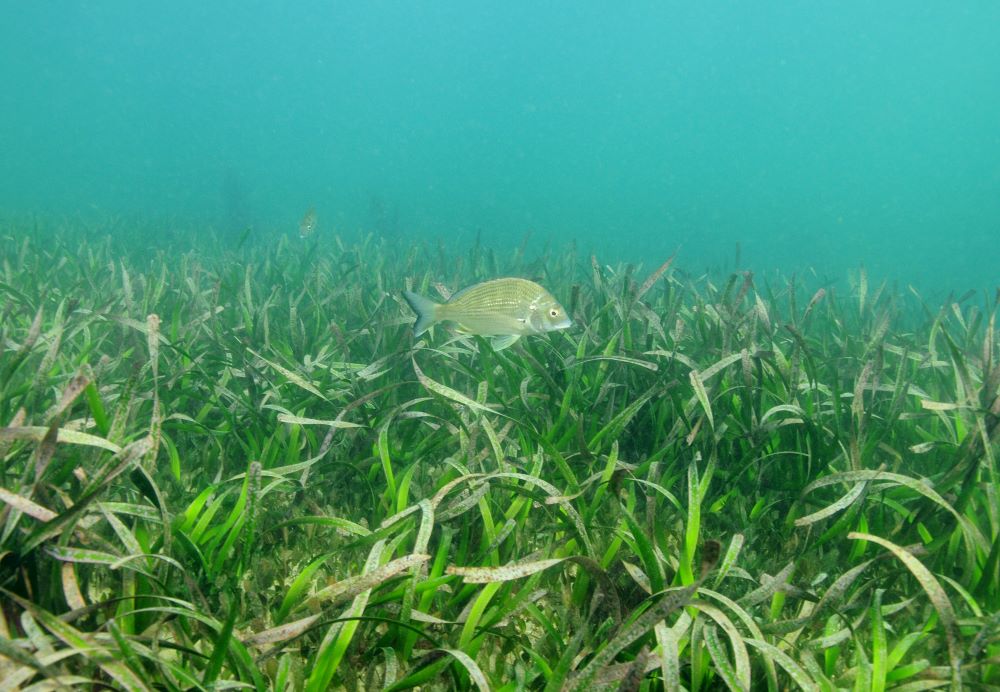Minimising habitat disturbance
Good fish habitat means more fish
Habitats are where fish live, feed and breed. A wide variety of healthy fish habitats means more fish, healthy fish and a variety of different species. This is essential for better fishing and a variety of fishing experiences. Large areas of fish habitat have been lost or degraded. So it is critical that we work to protect and repair fish habitats for better fish stocks and better diversity of marine flora and fauna. The Recreational Fishing Trust helps support the protection and repair of fish habitat and now additional funding from the Marine Estate Management Strategy is supporting this work as well.
Things you can do to help
Protect fish habitats and marine biodiversity – tips to remember:
- Use established access points to launch and retrieve your boat.
- Wherever possible, do not drive your boat across shallow, weedy areas, as boat propellers may damage seagrass.
- Use deeper water and navigation channels as much as possible, if you must travel over shallow water, keep your eye out for seagrass patches (often indicated by darker patches on the seabed), trim up your motor and travel slowly.
- If you are unfamiliar of the area, use the Deckee app on your phone to help you know where the seagrass beds are located Deckee - Boating App for Maps, Weather, Reports & Alerts.
- Do not anchor over seagrass beds as this can also cause significant damage.
- Travel at low speed near riverbanks to prevent boat wake eroding them.
- Put rocks back the way you found them when collecting bait.
- Tread carefully around shoreline vegetation such as mangroves, saltmarsh plants and river oaks.
- Take your litter home and encourage your friends to take their litter home too.
- Where you can, pick up litter that is spoiling your local fishing spot.
- Use approved pump out facilities.
- Get your friends or local fishing club involved in restoring fish habitat. For more info check out Fish Habitat Network.
- Operation Posidonia are calling on local beach-goers, fishers and boaters, who can join a local ‘seagrass storm squad’ and be part of the solution.

We also regulate activities that can degrade fish habitat. If you see or suspect any illegal activities affecting fish habitat, contact your local fisheries office or the Fishers Watch Phoneline on 1800 043 536. Watch out for:
- Saltmarsh, mangroves or seagrasses being damaged or destroyed.
- Drains being dug or other works taking place in wetlands.
- Machinery working in waterways.
- New bed or bank stabilisation works within a waterway.
- New waterfront structures such as jetties and boat ramps.
- Removal of in-stream native aquatic vegetation or snags (large woody debris).
- Dredging or removal of in-stream sediment, boulders, gravel beds, cobbles.
- Materials being placed into a waterway (e.g. tyres, concrete, sediment etc.).
- Any works next to a waterway causing sediments to run directly into the waterway.
- Placing of permanent or temporary barriers to fish passage across a waterway (e.g. new waterway crossings, nets, silt fences, fill).
- Discharge of pollutants into waterways.
- Poisoning or removing bankside vegetation.
- Cattle or other domestic stock grazing on mangroves or saltmarsh adjacent to the estuary.
Newstreams is a free electronic newsletter, produced by us every two months, to keep people up to date with information on aquatic habitat repair. To subscribe, e-mail: newstreams@dpi.nsw.gov.au and register your contact details.
Report fish kills
A fish kill is any sudden and unexpected large number of deaths of wild or cultured fish. Fish kills are often very obvious and cause a lot of public concern as many people think they are caused by pollution. There are many different reasons for fish kills and in fact many are caused by natural events. To report fish deaths please contact 1800 043 536.